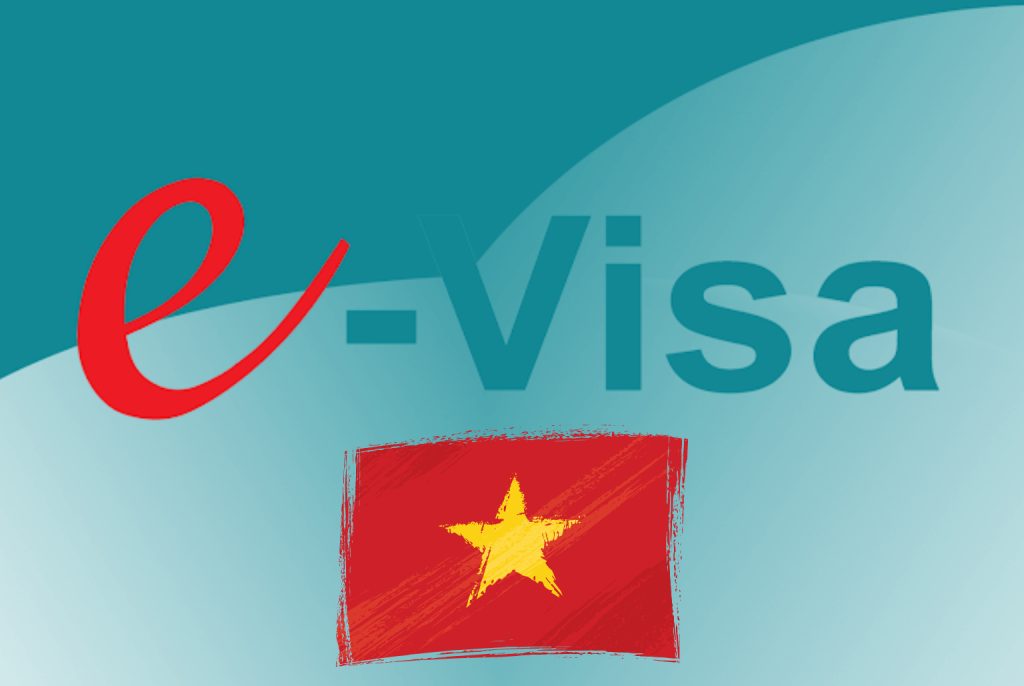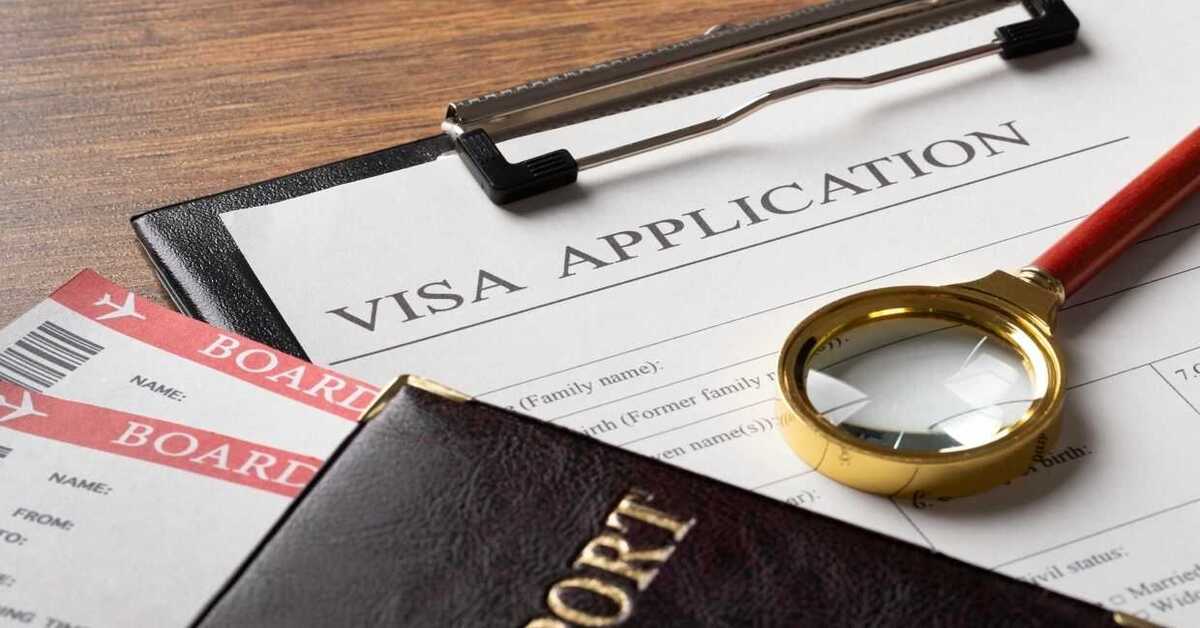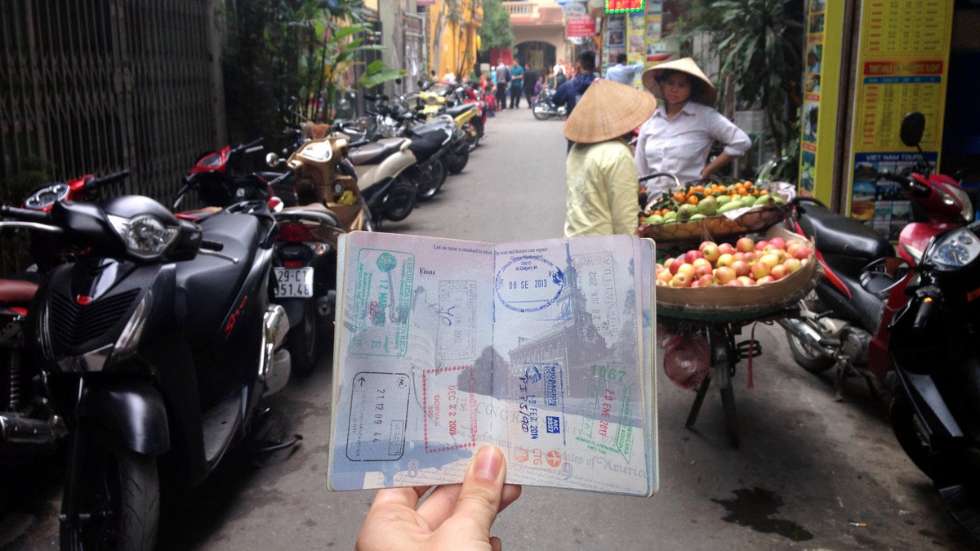
Visa for Vietnam from UK: Your Complete Guide to Easy Travel Access
Navigating the process of obtaining a visa for Vietnam from the UK can be a breeze when you’re armed with the right knowledge and guidance. This comprehensive guide explores everything from the essential requirements to alternative application methods, helping UK citizens plan their adventures in Vietnam’s vibrant landscapes and rich culture without unnecessary hurdles.
Table of Contents
Understanding the Visa Requirements for Vietnam

Diving into the visa requirements for Vietnam is the first step for any UK traveler eager to explore this Southeast Asian gem. With its stunning beaches, bustling cities, and ancient traditions, Vietnam attracts visitors from around the world, including from the UK. Understanding these requirements not only ensures compliance but also helps avoid common pitfalls that could delay your trip. In this section, we’ll break down the core elements, from the different visa types to the application nuances, providing UK citizens with detailed insights to make informed decisions.
Types of Visas Available to UK Citizens
When it comes to visas for Vietnam from the UK, UK citizens have several options tailored to different travel purposes, each designed to accommodate everything from leisurely holidays to professional endeavors. The Vietnamese government offers a range of visas that reflect the country’s welcoming stance toward international visitors, making it easier for people from the UK to experience its diverse offerings.
First, the Tourist Visa stands out as the most popular choice for UK travelers seeking relaxation and exploration. This visa allows entry for sightseeing, visiting friends or family, and engaging in non-work-related activities, typically for durations up to 30 or 90 days depending on the approval. Unlike business visas, it doesn’t permit employment, but it opens doors to Vietnam’s iconic sites like Ha Long Bay or the ancient streets of Hanoi. For UK applicants, the process often involves submitting proof of onward travel and sufficient funds, emphasizing the importance of planning ahead to demonstrate a genuine intent for tourism.
Beyond tourism, the Business Visa caters to UK professionals looking to engage in commercial activities, such as meetings, conferences, or market research. This visa is crucial for fostering international relations and economic ties, allowing stays of up to 90 days with possible extensions. Applicants from the UK must provide invitation letters from Vietnamese companies, which adds a layer of preparation but ensures that the visa aligns with legitimate business goals. The appeal here lies in Vietnam’s growing economy, where UK citizens can explore opportunities in sectors like technology and manufacturing, turning a visa application into a gateway for potential collaborations.
Finally, for those pursuing educational or long-term opportunities, the Student Visa and Transit Visa offer specialized pathways. The Student Visa is ideal for UK students enrolling in Vietnamese institutions, requiring enrollment proof and sometimes health certificates, while the Transit Visa suits layovers en route to other destinations. Each type underscores Vietnam’s commitment to global exchange, but UK travelers should weigh factors like visa duration and renewal possibilities to match their itinerary perfectly.
Eligibility Criteria for Obtaining a Vietnamese Visa
Eligibility for a visa for Vietnam from the UK hinges on several key factors that ensure applicants are well-prepared and meet international standards. These criteria are not just bureaucratic hurdles but safeguards that protect both travelers and the host country, reflecting Vietnam’s balance between openness and security in its immigration policies.
One primary requirement is passport validity, where UK citizens must possess a passport that remains valid for at least six months beyond their planned entry date into Vietnam. This rule, common in many countries, prevents issues at borders and allows for unforeseen extensions of stay. Additionally, applicants should ensure their passport has at least one blank page for stamps, as missing this detail could lead to rejection and force travelers to delay their plans. For UK passport holders, this means checking expiration dates well in advance, perhaps even renewing early if a trip is on the horizon, to avoid the stress of last-minute applications.
Previous travel restrictions also play a significant role in eligibility, particularly if an applicant has a history of visa violations or overstays in any country. Vietnam’s authorities scrutinize such records to maintain orderly immigration, so UK citizens with past issues might need to provide additional documentation, like a letter of explanation, to clarify their circumstances. This aspect highlights the importance of honest disclosure, as attempting to hide information can result in long-term bans. Furthermore, specific conditions for different visa types, such as financial proof for tourist visas or invitation letters for business ones, add layers of personalization, encouraging applicants to tailor their submissions accordingly.
In essence, meeting these criteria involves a mix of preparation and foresight, with UK travelers benefiting from resources like online checklists to streamline the process. By addressing these elements early, individuals can focus more on the excitement of their upcoming journey rather than administrative details.
Application Process for a Vietnamese Visa
The application process for a visa for Vietnam from the UK is a structured journey that, when navigated correctly, leads to seamless approval and minimal delays. It’s a process designed to be efficient, incorporating modern tools like online portals to accommodate the needs of international applicants, including those from the UK.
Starting with the online application procedure, UK citizens can initiate their request through the official Vietnamese e-visa website, which simplifies the experience by allowing digital submissions from the comfort of home. This method requires creating an account, filling out detailed forms about personal information, travel plans, and visa type, and uploading necessary documents. The digital interface reduces paperwork and speeds up processing, but it’s crucial to double-check entries for accuracy, as errors can lead to delays or denials. For instance, mismatched details between the application and passport could trigger additional verification, underscoring the need for meticulous attention.
When it comes to required documents for submission, the list varies by visa type but generally includes a valid passport, recent photographs, proof of accommodation, and financial statements. For UK applicants, providing a criminal record check or health declarations might be necessary, especially post-pandemic, to demonstrate compliance with global standards. These documents not only verify identity but also paint a picture of the traveler’s intentions, making it essential to organize them logically. Payment methods and fees form another critical part, with options like credit cards or bank transfers accepted for fees ranging from £20 to £60 depending on the visa duration. Understanding these costs upfront helps in budgeting, as additional charges for express processing could apply if time is limited.
Processing times are the final piece of this puzzle, typically spanning from three to ten business days for standard applications, though e-visas can be quicker. UK citizens should factor in potential holidays or high-season rushes, which might extend wait times, and consider premium services for faster turnaround. Overall, this process rewards patience and organization, transforming what could be a stressful task into a straightforward prelude to adventure.
Special Considerations for UK Citizens

For UK citizens applying for a visa for Vietnam, special considerations can make all the difference in ensuring a hassle-free experience. These factors go beyond the basics, addressing contemporary issues like health regulations and common application errors that could trip up even the most prepared travelers. By focusing on these elements, you can navigate potential obstacles with confidence, turning potential challenges into opportunities for a smoother journey.
COVID-19 Regulations and Health Requirements
The landscape of travel has evolved significantly due to the COVID-19 pandemic, and for UK citizens seeking a visa for Vietnam, understanding the latest health regulations is paramount. Vietnam’s proactive approach to public health means that entry requirements often include specific measures to safeguard both visitors and residents, reflecting a commitment to safety in a post-pandemic world.
Vaccination proof has become a cornerstone of these regulations, with UK travelers typically needing to show full vaccination status against COVID-19 upon arrival. This usually involves presenting a digital or physical certificate, such as the NHS COVID Pass, which must cover vaccines recognized by Vietnam’s health authorities. The process emphasizes the importance of staying up-to-date with boosters, as lapses could result in denied entry or mandatory quarantines. For instance, if a UK citizen’s vaccination record doesn’t align with Vietnam’s approved list, they might face additional testing or even travel bans, highlighting how health preparedness directly impacts visa validity.
Testing requirements add another layer, often mandating a negative PCR test taken within 72 hours before departure. This rule varies based on vaccination status and can include rapid tests at airports, making it essential for UK applicants to check the latest guidelines from sources like the Vietnamese embassy. Beyond tests, quarantine measures might apply for unvaccinated individuals or those from high-risk areas, involving periods of isolation in designated facilities. These protocols not only protect public health but also encourage travelers to plan flexibly, perhaps scheduling buffer days in their itinerary.
In practice, these health requirements underscore the need for ongoing vigilance, with UK citizens advised to monitor updates via official channels. By adhering to these rules, travelers can enjoy Vietnam’s offerings without the shadow of health concerns, turning what was once a barrier into a standard part of modern travel.
Common Mistakes to Avoid When Applying
Even with thorough preparation, UK citizens applying for a visa for Vietnam can fall prey to common mistakes that derail the process. Recognizing and sidestepping these errors is key to a successful application, as they often stem from oversight or misunderstanding rather than intentional faults.
One frequent pitfall is incorrect document submission, where applicants might provide outdated or incomplete forms, such as a passport copy that’s not clearly legible. For UK travelers, this could mean forgetting to include essential items like a sponsor letter for business visas, leading to automatic rejection and the need to restart. The consequences extend beyond delays, potentially incurring extra fees or even affecting future applications, so double-checking against official checklists is a vital habit.
Misunderstanding visa duration is another area where mistakes occur, with some UK citizens assuming a single-entry visa covers multiple trips or extends beyond its stated period. This error can result in overstays, fines, or entry bans, emphasizing the need to clarify details like single versus multiple entries during the application. For example, a tourist visa might seem sufficient for a quick visit, but if plans change, failing to account for extensions could complicate matters.
Lastly, neglecting to verify entry points can cause issues, as not all visas are valid for every border crossing. UK applicants should confirm that their visa aligns with their arrival method, whether by air, land, or sea, to avoid surprises at immigration. By addressing these common errors proactively, travelers can ensure their visa for Vietnam from the UK serves as a reliable key to exploration rather than a stumbling block.
Alternatives to Traditional Visa Applications

Exploring alternatives to the standard visa application process for Vietnam from the UK opens up convenient pathways that cater to modern travelers’ needs. These options, including digital and on-arrival methods, offer flexibility and efficiency, allowing UK citizens to bypass some of the traditional paperwork while still meeting regulatory requirements. This section highlights innovative approaches that can streamline your preparations and enhance your overall travel experience.
E-Visa Options for UK Travelers
The e-visa system represents a modern leap for UK citizens seeking a visa for Vietnam, providing a digital alternative that simplifies the entire process from application to approval. This method is particularly appealing in today’s fast-paced world, where convenience and speed are paramount.
For starters, the e-visa process begins online through Vietnam’s official portal, where applicants upload documents and pay fees electronically, often receiving approval within a few days. UK travelers benefit from this as it eliminates the need for embassy visits, making it ideal for those with busy schedules or living far from diplomatic offices. The eligibility criteria are straightforward, requiring a valid passport, a clear photo, and details of your travel plans, which must align with the visa’s purpose.
One of the key benefits is the ability to stay for up to 30 days with a single entry, extendable under certain conditions, giving UK visitors ample time to immerse themselves in Vietnam’s culture. This option not only reduces costs but also minimizes the risk of lost documents, as everything is handled digitally. However, it’s essential to use the official website to avoid scams, ensuring that your e-visa is legitimate and accepted at borders.
In summary, the e-visa empowers UK travelers with a user-friendly tool that enhances accessibility, making Vietnam’s wonders more attainable than ever. By opting for this route, you can focus more on planning your itinerary and less on administrative tasks.
Visa on Arrival: An Option Worth Considering
Visa on Arrival offers an intriguing alternative for UK citizens applying for a visa for Vietnam, allowing for on-the-spot processing upon landing in the country. This method suits spontaneous travelers or those with tight schedules, but it comes with its own set of procedures and considerations.
To utilize Visa on Arrival, UK travelers must first obtain an approval letter online from authorized agents, which serves as a pre-approval for the visa. Upon arrival at major airports like Hanoi or Ho Chi Minh City, you present this letter along with your passport and other documents to immigration officials, who then issue the visa. Necessary documentation includes a passport valid for at least six months, two passport-sized photos, and proof of onward travel, streamlining what could otherwise be a lengthy process.
The pros of this option are evident in its convenience, as it saves time and allows for last-minute changes to plans. For UK citizens, it means less pre-trip paperwork and the ability to handle everything in one go. However, cons include potential queues at the airport and the risk of delays if documents are not in order, which could disrupt travel plans. Despite these, it’s a viable choice for short stays, offering a sense of adventure right from the start.
Overall, weighing the pros and cons helps UK travelers decide if Visa on Arrival aligns with their style, turning a potentially stressful entry into a seamless transition.
Additional Resources for Further Assistance

For UK citizens navigating the visa for Vietnam process, additional resources can provide invaluable support and clarity. These tools, from embassy contacts to online platforms, serve as lifelines for questions and updates, ensuring you’re never alone in your preparations. This section equips you with reliable options to enhance your application experience.
Contacting the Vietnamese Embassy in the UK
Reaching out to the Vietnamese Embassy in the UK is a direct way to get personalized assistance with your visa application. This resource is especially helpful for complex cases or when you need official verification.
The embassy, located in London, offers services like visa consultations and document authentication. UK citizens can contact them via phone or email for guidance. These interactions provide peace of mind. The staff’s expertise ensures accurate advice.
In addition to inquiries, the embassy hosts events that inform about travel requirements. Visiting in person allows for immediate feedback. This makes the process more manageable and less intimidating.
Useful Websites and Online Platforms
Online platforms are essential for UK citizens seeking informationabout visa applications for Vietnam. Numerous trusted websites serve as hubs of information, offering comprehensive insights into the latest travel regulations, visa options, and practical advice from fellow travelers.
Official government websites are the most reliable sources, providing accurate details about visa requirements and application processes. For UK citizens, the Vietnam Immigration Department’s website is a crucial point of reference, ensuring you have access to up-to-date information regarding any changes in visa policies or additional documentation needed. Additionally, visiting the UK Foreign, Commonwealth Development Office (FCDO) site can offer essential travel advisories and highlight specific safety considerations for travelers heading to Vietnam.
In addition to official government resources, travel blogs and forums can offer personal accounts and tips that enrich your understanding of the visa process. Websites like Lonely Planet and TripAdvisor often feature user experiences and recommendations that can illuminate common pitfalls and successful strategies when applying for a visa to Vietnam. Engaging with these communities allows you to gather diverse perspectives, helping you feel more prepared and informed.
Utilizing these online resources not only streamlines the visa application process but also enhances your overall travel experience. By staying informed, UK travelers can navigate potential challenges with ease, ultimately leading to a smoother journey into the heart of Vietnam.
Conclusion
Navigating the visa requirements for Vietnam as a UK citizen may seem overwhelming at first glance, but thorough preparation and knowledge of the available options can simplify the process significantly. Understanding the different types of visas, eligibility criteria, and application procedures—whether opting for traditional methods or modern alternatives like e-visas or Visa on Arrival—empowers travelers to make informed decisions tailored to their needs.
It is equally important to be aware of special considerations, such as COVID-19 regulations and common mistakes that could hinder your travel plans. By proactively addressing these factors, you ensure that your entry into Vietnam becomes a seamless experience rather than a source of stress. Ultimately, whether you choose a conventional visa route or embrace the flexibility of an e-visa or Visa on Arrival, being well-informed maximizes your ability to enjoy all that Vietnam has to offer.
As you prepare for your journey, remember to leverage available resources, including embassy contacts and trusted online platforms, to obtain the most current and relevant information. With the right preparation, your adventure begins with confidence, allowing you to fully immerse yourself in Vietnam’s captivating culture and breathtaking landscapes. Safe travels!





